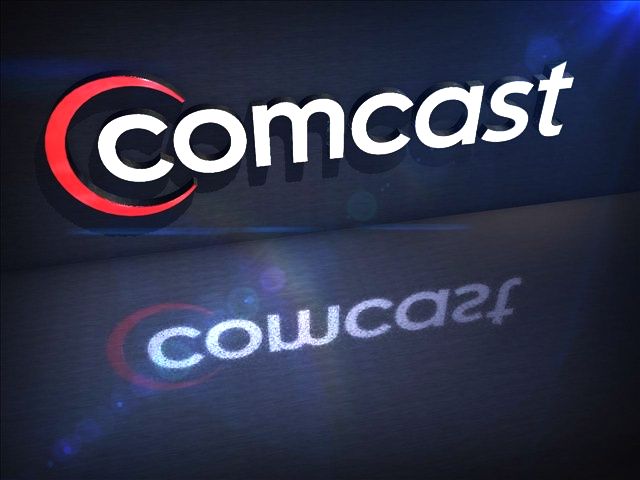Upstream specialist co-ops ought not be breaking fundamental web benefit convention network.
While doing some examination on open cloud-based reinforcement to blob stockpiling arrangements, I chose to tinker with the likelihood of utilizing Azure not similarly as my reinforcement target but rather as a swap for my primary record server sitting under my work area.
I had effectively experienced the way toward dispensing with all my rack mount frameworks from my home that were consuming up room and expending excessively power. These were being utilized for test purposes and it was anything but difficult to supplant them with IaaS VMs in Azure.
Utilizing open cloud as your document server, however, that is somewhat extraordinary. It's entirely simple to do as an independent venture; the Azure document benefit makes it simple to turn on SMB/CIFS record offering to any capacity account.
It doesn't expend process, just capacity costs, however it acts simply like whatever other record server or NAS gadget on-premises.
Also, if your business utilizes business-class broadband, for example, a MPLS association with a Tier-1 telco, it works extraordinary. In any case, on the off chance that you are a SOHO-based business and are utilizing buyer class broadband, not really.
It has nothing to do with Azure's innovation - that part works incredible. The issue needs to do with what suppliers like Comcast are doing with get to controls on their systems.
When I was setting up my Azure record administrations, I found that I couldn't outline drive from Windows to the document stockpiling. At to begin with, I thought I had something in my firewall set off-base.
Not a chance. Indeed, even with my PC set to ANY/ANY avoidances originating from that MAC address, despite everything I couldn't associate with it.
After some experimentation and some essential nerd legal sciences, I established that one of the ports that the SMB convention utilizes - TCP 445 - was being blocked upstream. Along these lines, I called my broadband organization, Blue Stream, which keeps up the nearby link foundation in the town where I live in South Florida.
Nope, no ports being obstructed there.
Be that as it may, do you know where loads of ports are being blocked? Comcast, which is Blue Stream's upstream transfer speed supplier.
Comcast probably pieces port 445 on the grounds that it is utilized by the WannaCry malware to spread between frameworks. Be that as it may, it's likewise the port Microsoft Active Directory employments.
Along these lines, on the off chance that you utilize Comcast, yet need to create and test record benefits on Azure, you will need to build up a VPN association, which sort of nullifies the point of having the capacity to get to your document administrations from any cell phone.
Comcast is not by any means the only supplier that hinders certain ports. AT&T does, as do others.
I comprehend ISPs needing to be proactive about security, yet blocking ports that basically incapacitate usefulness on real cloud administrations is unsuitable.
I feel... Comcastrated.
Presently, Microsoft could settle this issue by rolling out convention improvements to SMB - by having it impart over substitute ports and having the capacity to arrange that in Azure. However, that implies rolling out improvements to the Windows OS interchanges convention stack and pushing that out to a huge number of frameworks.
It likewise would mean changes in the SMB/CIFS standard too, and that would should be taken off to SAMBA and whatever else that needs that convention including a wide range of NAS gadgets that keep running on Linux and other subsidiary OSes.
SMB is only one convention. There are others that are required for such a significant number of different applications. We can't change or supplant every one of them each time another bit of malware turns out.
What we require is a superior answer for checking system activity and following up on dangers at the private level as opposed to blocking ports discount.
In a perfect world, it is extraordinary to have the capacity to give a profound parcel review gadget to each home, yet this sort of innovation is regularly sent at endeavors and it begins at around $1,000 an apparatus and can cost upward of thousands of dollars a year for the membership, contingent upon the seller.
To start with, there's no motivation behind why the business can't build up a bundle review and interruption location/web application portal utilizing open source segments and afterward convey it in a multi-occupant design at the supplier at the edge of the system, with some kind of an application that the home broadband client can use to secure their movement in a simple, wizard-like, self-benefit form.
Log dangers going in and out, get notices on interesting action - all that well done. Maybe give brought together danger administration and profound bundle assessment as an esteem included administration. Overseen web security for private clients and independent company.
As more of our administrations go cloud-based, especially with the multiplication of Internet of Things gadgets that need steady network, we will need to locate a superior approach to manage the issues of proactive checking and following up on web activity originating from the home, versus ham-fisted and draconian techniques, for example, port hindering that lessen the estimation of the broadband availability in any case.
This isn't only an issue of unhindered internet; it's the main way we will be ready to flawlessly move to the cloud, long haul. The cost of section ought not need to be an immediate Tier-1 rented line, with a venture class benefit level assention and a private virtual circuit to the cloud supplier.
Cloud administrations ought to be available to everybody. It is conceivable to be both sheltered and open, yet it will require a reconsidering of how suppliers enable access to those channels.






No comments:
Post a Comment